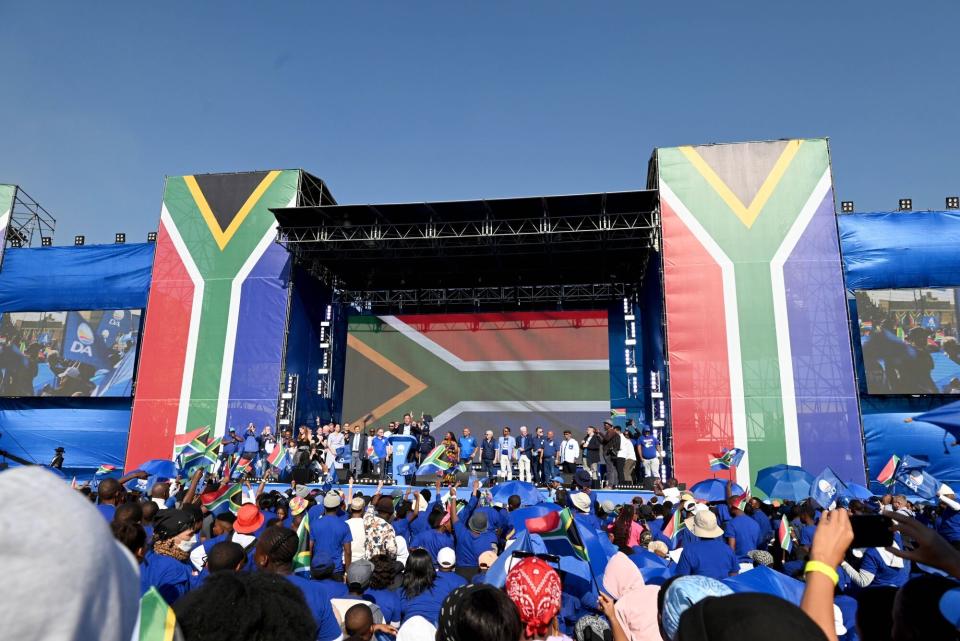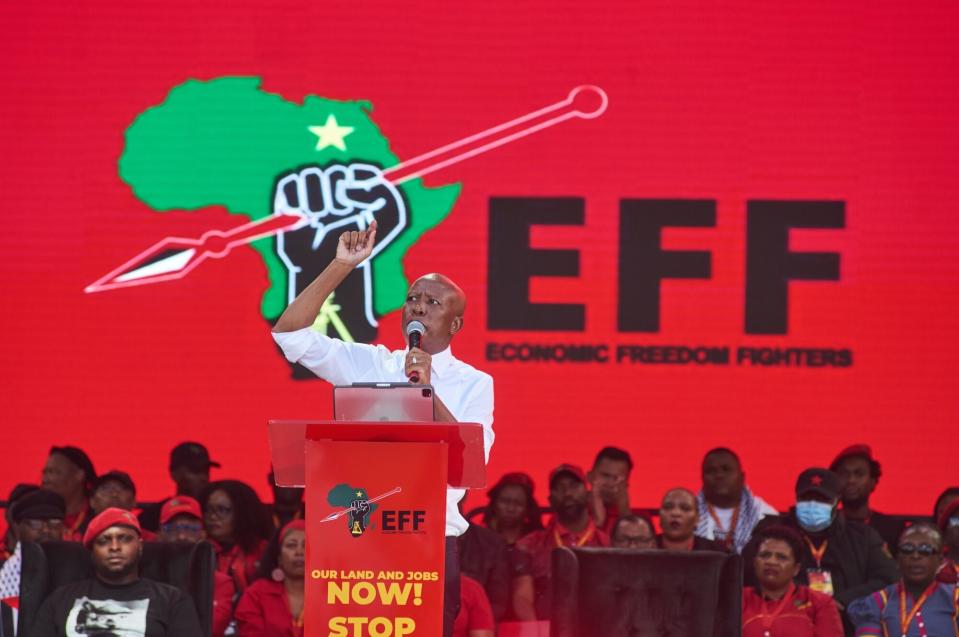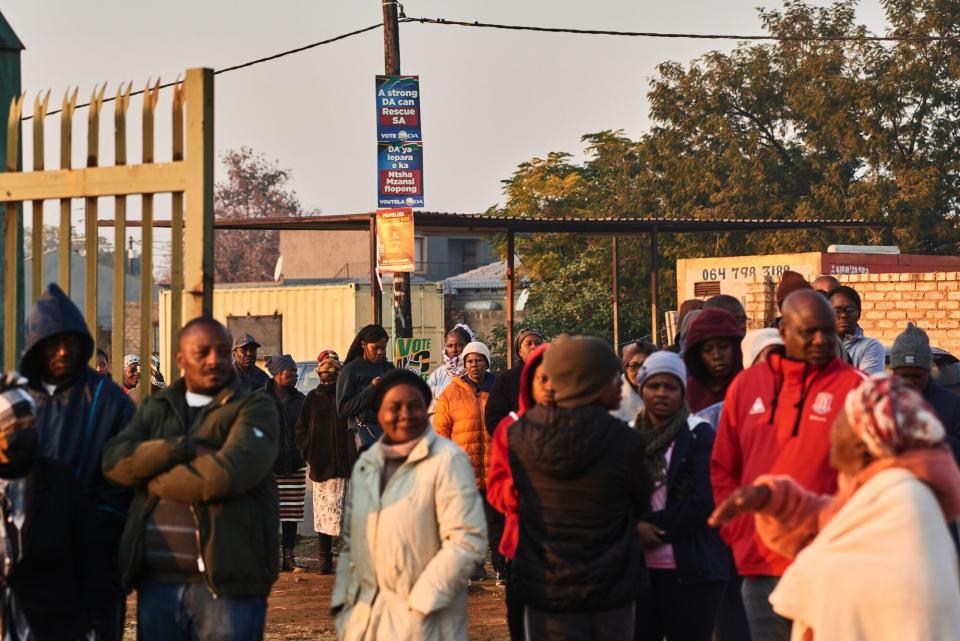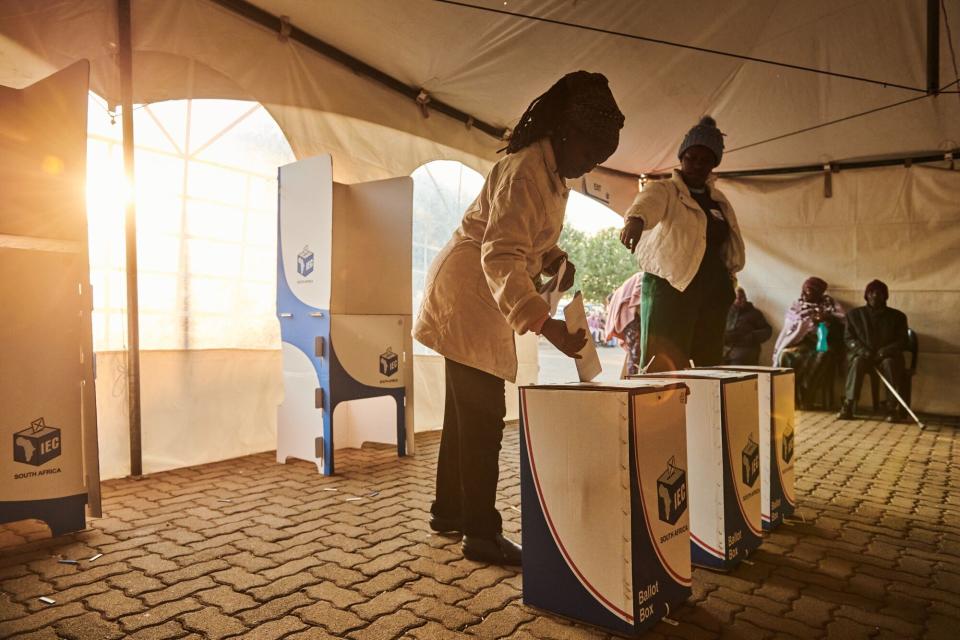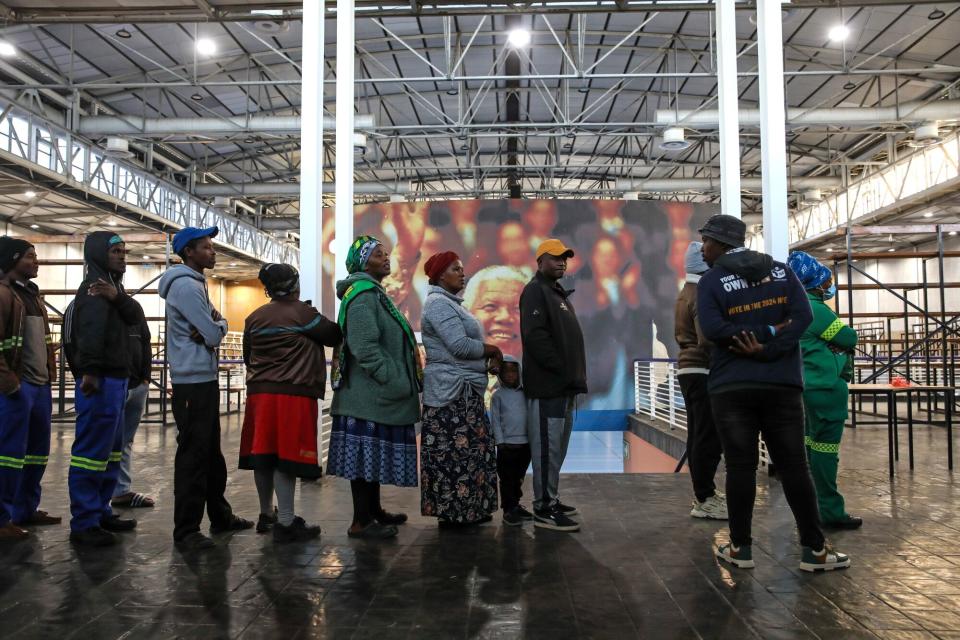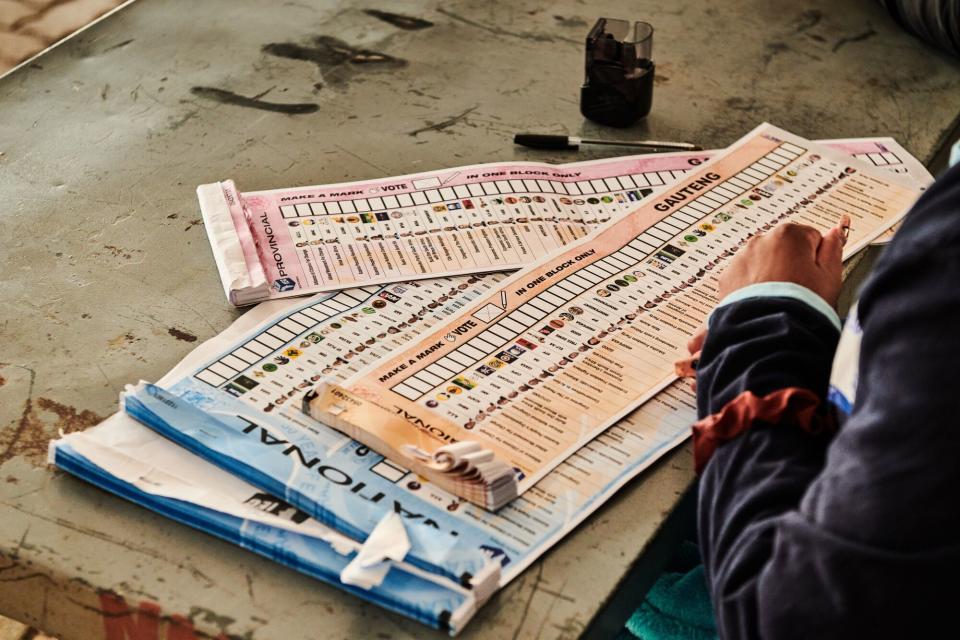South Africans Vote in Most Unpredictable Election Since 1994
(Bloomberg) -- South Africans are voting in an election on Wednesday that looks set to reshape a political landscape dominated for three decades by the party that Nelson Mandela led to power.
Most Read from Bloomberg
World’s Largest Nuclear Plant Sits Idle While Energy Needs Soar
Warning Signals Are Flashing for Homeowners in Texas and Florida
‘Not Gonna Be Pretty:’ Covid-Era Homebuyers Face Huge Rate Jump
New BYD Hybrid Can Drive Non-Stop for More Than 2,000 Kilometers
Insurers Sink as UnitedHealth Sees ‘Disturbance’ in Medicaid
The African National Congress has won every vote since the end of White-minority rule in 1994, but its support slipped from a peak of almost 70% in 2004 to 57.5% in 2019, and most opinion polls conducted before the election point to it losing its parliamentary majority for the first time.
Never miss an episode. Follow The Big Take daily podcast today.
While the party has dismissed the surveys, there’s widespread disgruntlement over a 33% unemployment rate, one of the world’s highest crime rates and the collapse of government services in many areas.
Read more: Rand on Razor’s Edge as South Africans Vote in Pivotal Election
Long lines formed outside of many of the 23,292 balloting stations before they opened in the early hours of Wednesday. Voting will continue until 9 p.m., with an initial projection several hours later and final results likely over the weekend.
“South Africa’s general election is a watershed moment in the political history of the country,” said Aleix Montana, southern Africa analyst at risk adviser Verisk Maplecroft. “Voter discontent is driven by the ANC government’s failure to address a plethora of socioeconomic issues.”
Many analysts expect the ANC to win more than 45% of the vote. That would allow it to retain power by forming an alliance with one or more smaller parties and exclude its main rivals — particularly former President Jacob Zuma’s uMkhonto weSizwe Party and the radical leftist Economic Freedom Fighters, which have both pledged to nationalize land and mines and would seek major concessions on policy and appointments. It would also likely omit the business-friendly Democratic Alliance, currently the main opposition.
The financial markets are betting the country will avoid a worst-case scenario and that economic policy will largely remain intact, with the rand having gained 3.6% against the dollar since the start of last month. Power cuts that have hobbled the economy have also eased over the past few weeks, adding to the positive sentiment, while record-setting commodity prices have boosted exports.
Read more: South Africa’s Vote Poses Risks to Economy Finally on the Mend
Anything less than an outright majority would threaten “chaos,” Finance Minister Enoch Godongwana told Bloomberg Television on Tuesday. “What these elections are about, are about stability and chaos, and the ANC provides that stability,” he said.
Bloomberg Terminal clients can click on ELEC ZA for more on South Africa’s elections
Almost 28 million people have registered to cast ballots and 70 parties and 11 independents are vying for seats in parliament and the nine provincial legislatures. The president will be elected at the first sitting of the new National Assembly, which must take place within 14 days of the release of the results.
The ANC is banking on the popularity of President Cyril Ramaphosa, 71, to help shore up its support. He had the highest approval rating among party leaders in a survey published this week by polling company Ipsos — albeit with a score of 5.1 out of 10. Zuma ranked second with 3.7 and the EFF’s leader Julius Malema third with 3.5.
In the ANC’s final election rally in Johannesburg’s FNB stadium last weekend, Ramaphosa emphasized the strides the party has made over the past 30 years, including extending monthly welfare grants to almost half the population.
“The people of South Africa will give the ANC, as they vote today, a firm majority,” he said after casting his ballot in Soweto, near Johannesburg. “There isn’t even a doubt about that.”
DA leader John Steenhuisen, 48, has touted his party’s record in running Cape Town and the surrounding Western Cape province as evidence of its ability to do a better job governing the country. The economic growth rate in the region has consistently exceeded the national average, while the unemployment rate is markedly lower.
Malema, 43, has sought to rally support among younger voters, while Zuma has tapped into his popularity among his predominantly fellow Zulu-speakers in his home province of KwaZulu-Natal to build up his new party. The 82-year-old led South Africa for almost nine scandal-tainted years before the ANC forced him to step down in 2018 and replaced him with Ramaphosa.
Police are on high alert for any signs of election unrest after Zuma questioned the impartiality of the Independent Electoral Commission and members of his party allegedly breached a warehouse where ballot papers were being stored.
Nearly 3,000 members of the defense force had been deployed to help the police maintain law and order over the elections, Ramaphosa’s office said in a statement late Tuesday.
--With assistance from Paul Vecchiatto, Janice Kew, Mpho Hlakudi, Derek Alberts, Monique Vanek, Sylvia Westall, Julius Domoney and Amogelang Mbatha.
Most Read from Bloomberg Businessweek
©2024 Bloomberg L.P.


